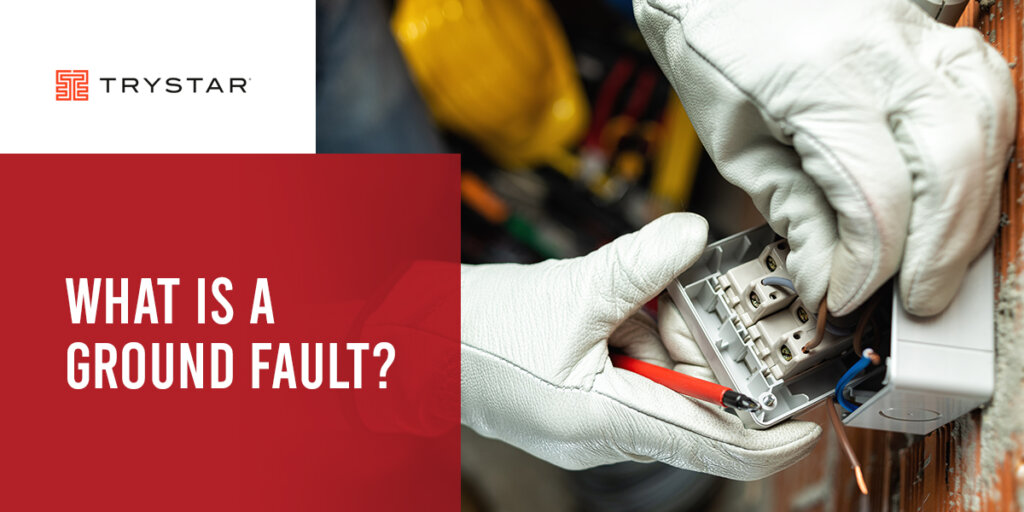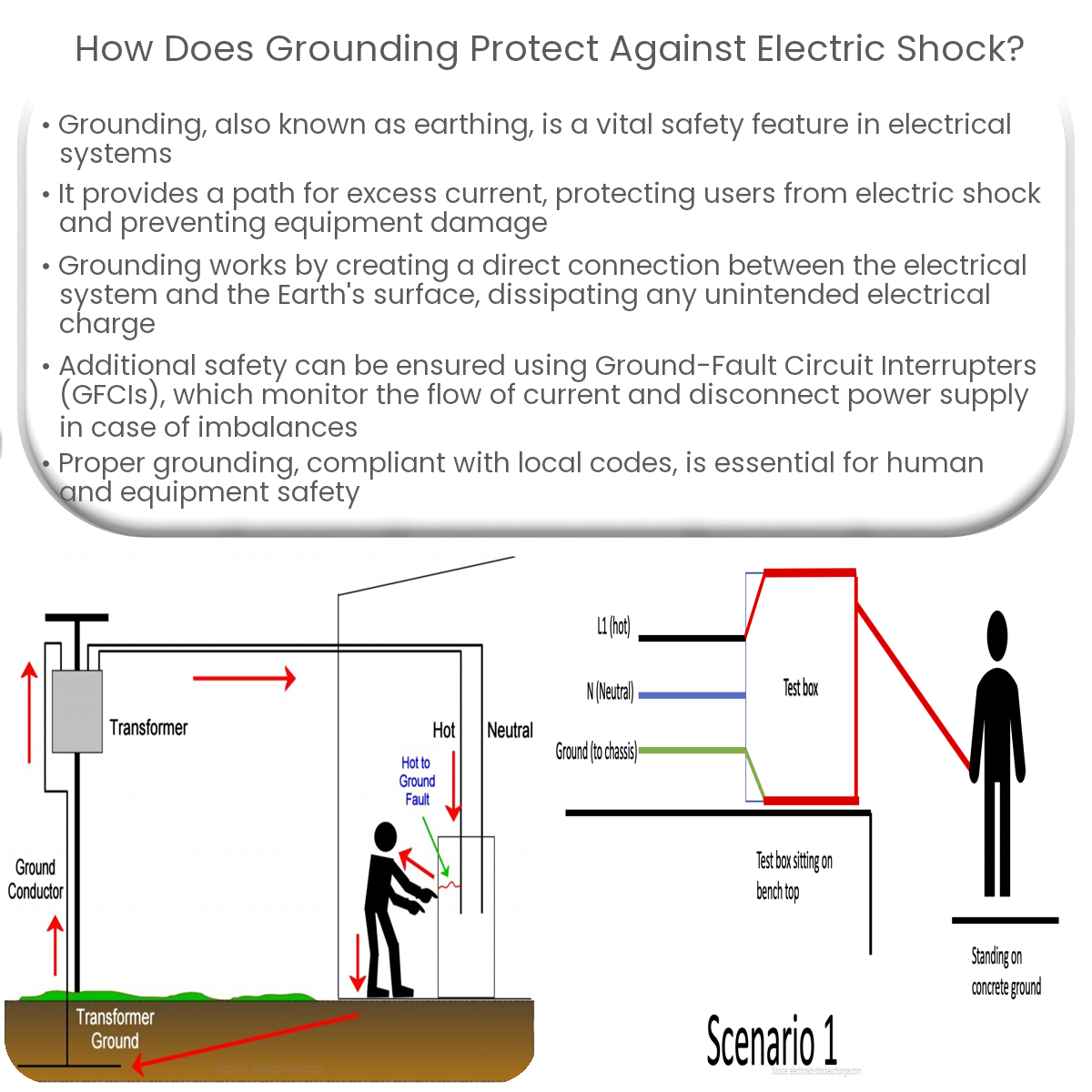Top Notch Tips About Can A Ground Fault Start Fire

The Curious Case of Ground Faults and Unwanted Bonfires
1. Understanding Ground Faults
Okay, so you're wondering if a ground fault can be the spark that ignites a full-blown fire. It's a valid concern! To get to the bottom of it, let's first break down what a ground fault actually is. Think of your home's electrical system like a well-behaved river, with electricity flowing neatly through the designated channels (wires). A ground fault happens when that river overflows, and electricity decides to take an unauthorized detour to the ground — maybe through a metal appliance, a damp wall, or even, heaven forbid, you!
This "detour" is often caused by damaged insulation on wires, loose connections, or even just plain old wear and tear. Basically, the electricity is saying, "I'm outta here!" and finding the easiest path to escape, which is usually something grounded. Now, that rogue electricity isn't just sightseeing. It's looking for the quickest route back to its source, and that journey can cause some serious trouble.
The scary part is that this unintended path often has higher resistance than the normal electrical circuit. Higher resistance means more heat. Think of rubbing your hands together really fast — that friction creates heat. The same thing happens with electricity forcing its way through a less-than-ideal route. And where there's heat, there's the potential for, well, things to go up in flames.
Essentially, a ground fault is like a ticking time bomb. It's not always going to immediately cause a fire, but it creates the perfect conditions for one to start. Ignorance is not bliss in this case — understanding the risks associated with ground faults can save lives and property. So, keep reading!

The Spark That Ignites
2. The Heating Effect and Flammable Materials
So, we know a ground fault creates heat. But how does that heat actually translate into a roaring inferno? It all comes down to what that heat comes into contact with. If that rogue electricity decides to party near something flammable, like wood, paper, dust bunnies (those little menaces!), or even certain types of plastic, the risk escalates dramatically.
Imagine a frayed wire making contact with a pile of old newspapers behind your bookcase. The ground fault causes the wire to overheat, slowly but surely raising the temperature of the surrounding materials. Eventually, that newspaper reaches its ignition point, and BAM! Suddenly you have a much bigger problem than just a faulty wire. This is not a drill! A fire can spread incredibly quickly, especially if it has plenty of fuel to feed on.
The insidious thing about these situations is that they can smolder for quite a while before bursting into full-blown flames. That means you might not even realize there's a problem until it's too late. The smell of burning plastic or a faint, acrid odor could be your only warning signs, so be vigilant! And don't ignore those unexplained warm spots on walls or appliances. They could be telling you a story you don't want to hear.
Therefore, it's not just the ground fault itself that's the culprit, but the combination of the fault and the presence of flammable materials that creates a hazardous situation. Prevention is key, and that means being mindful of your electrical wiring, keeping flammable materials away from potential heat sources, and addressing any electrical issues promptly.

What Is A Ground Fault? Trystar
GFCI Outlets
3. How GFCI Outlets Protect You
Thankfully, we're not entirely defenseless against the dangers of ground faults! Enter the Ground Fault Circuit Interrupter (GFCI) outlet. These little superheroes are designed to detect even the slightest imbalance in electrical current — even before you feel a shock!
Think of a GFCI outlet as a hyper-sensitive bodyguard for your electrical system. It constantly monitors the current flowing in and out of a circuit. If it detects that some of the current is "leaking" (indicating a ground fault), it trips the circuit almost instantly, cutting off the power and preventing a potentially dangerous shock or, worse, a fire from starting. It's faster than you can say "uh oh!"
You'll typically find GFCI outlets in areas where water is present, like bathrooms, kitchens, garages, and outdoor areas. This is because water dramatically increases the risk of electrical shock and ground faults. However, it's a good idea to consider installing them in other areas of your home as well, especially in older homes with potentially outdated wiring. Its an investment into your home's safety!
Testing your GFCI outlets regularly is crucial. Most have a "test" and "reset" button. Press the "test" button, and the outlet should trip, cutting off the power. Then, press the "reset" button to restore power. If the outlet doesn't trip when you press the "test" button, it's time to replace it! Don't take chances with your safety.

How To Troubleshoot A Ground Fault Circuit
Older Homes
4. The Vulnerabilities of Aging Electrical Systems
If you live in an older home, there's a higher chance your electrical system might be more susceptible to ground faults and related fire hazards. Why? Well, over time, wiring insulation can become brittle, cracked, or damaged. This is just a natural consequence of age and exposure to the elements.
Think of your electrical wiring like an old garden hose. Over the years, the hose can become dry, cracked, and prone to leaks. Similarly, old wiring can lose its protective coating, leaving the wires exposed and vulnerable to short circuits and ground faults. Plus, older homes may not have been built with the same safety standards as modern homes, lacking features like GFCI outlets or adequate grounding systems.
Another potential issue is that older homes may have had their electrical systems "patched" over the years with various repairs and additions. These mismatched components and haphazard wiring can create weak points and increase the risk of problems. It's like trying to build a skyscraper on a shaky foundation — sooner or later, something's going to give.
If you own an older home, it's essential to have a qualified electrician inspect your electrical system regularly. They can identify potential hazards, recommend necessary upgrades, and ensure that your home is up to code. It's a small price to pay for peace of mind and the safety of your family. And if you're planning any renovations, now's the perfect time to address any underlying electrical issues.

Prevention is Key
5. Simple Steps for Electrical Safety
The best way to deal with ground fault fires is to prevent them from happening in the first place! Luckily, there are several simple steps you can take to minimize your risk. First and foremost, be mindful of your electrical cords. Don't overload outlets or extension cords. This puts unnecessary strain on the wiring and can cause overheating.
Inspect your cords regularly for signs of damage, such as fraying, cracking, or exposed wires. If you find any damaged cords, replace them immediately. Don't try to "fix" them with electrical tape — it's not a long-term solution and can actually be quite dangerous. And never run cords under rugs or furniture, where they can be easily damaged and pose a fire hazard.
Another important tip is to keep electrical appliances away from water. We already talked about GFCI outlets in bathrooms and kitchens, but it's also a good idea to be cautious when using appliances near sinks, bathtubs, or pools. Water and electricity simply don't mix, and even a small amount of moisture can create a dangerous situation.
Finally, if you're not comfortable working with electricity, don't! Leave electrical repairs and installations to qualified professionals. It's tempting to try and save a few bucks by doing it yourself, but electrical work can be complex and dangerous. Hiring a licensed electrician ensures that the work is done safely and correctly, giving you peace of mind.

How Does Grounding Protect Against Electric Shock?
FAQ
6. Your Burning Questions Answered
Q: Can a ground fault trip a breaker without starting a fire?
A: Absolutely! In fact, that's often the best case scenario. A properly functioning circuit breaker is designed to trip (shut off the power) when it detects an overload or a short circuit, including a ground fault. This prevents the fault from escalating into a fire by cutting off the electrical supply. So, if a breaker trips, it's doing its job! Investigate the cause of the trip before simply resetting it.
Q: What are some common signs of a ground fault?
A: Keep an eye (and nose) out for these telltale signs: frequently tripping circuit breakers, especially when using certain appliances; a burning smell coming from outlets or appliances; warm spots on walls or appliances; flickering lights; and mild electrical shocks when touching metal objects. If you notice any of these, it's time to investigate!
Q: Are all ground faults equally dangerous?
A: Not necessarily. The severity of a ground fault depends on several factors, including the amount of current flowing through the fault, the resistance of the path to ground, and the presence of flammable materials. A minor ground fault might just trip a breaker, while a more severe fault could quickly escalate into a fire. That's why it's always best to err on the side of caution and address any potential electrical issues promptly.